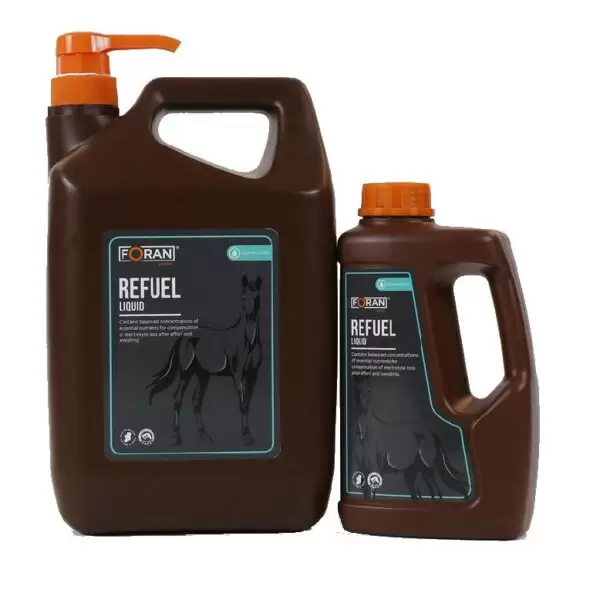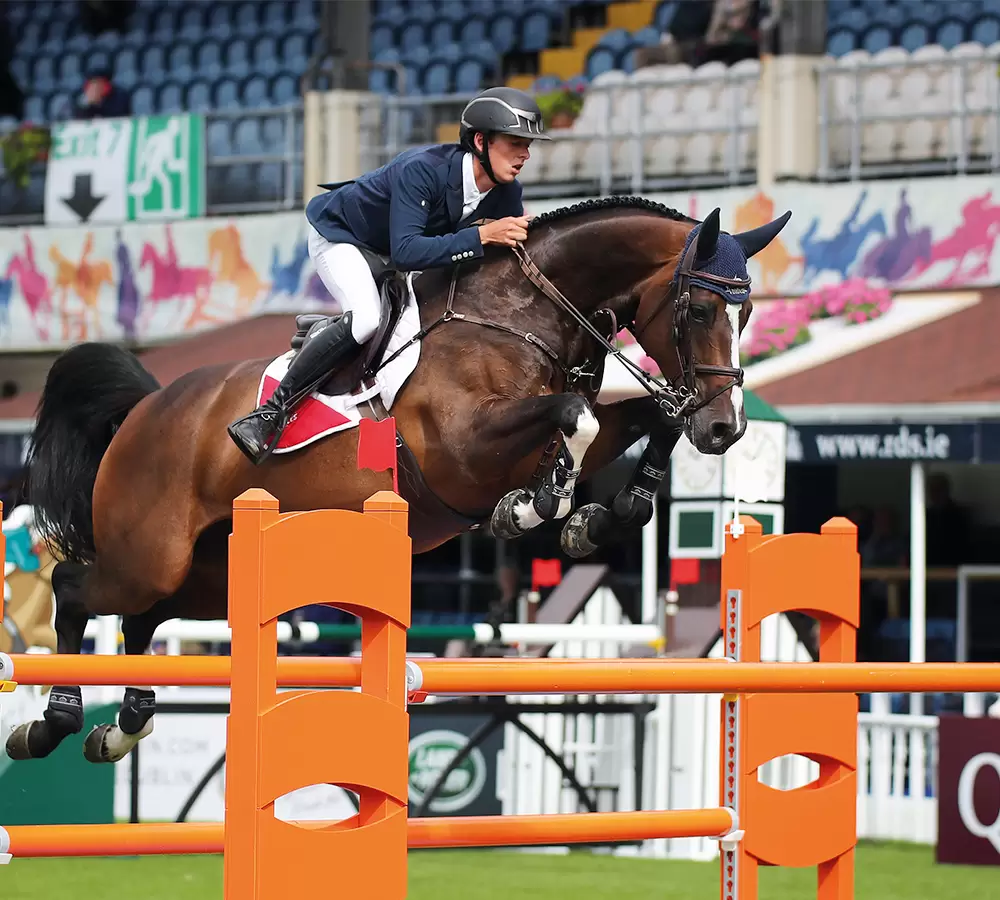Refuel Gel
Concentrated electrolyte gel with added B vitamins and antioxidants for optimum recovery
View ProductHorses lose ‘salts’ in their sweat, known as electrolytes, which are essential minerals that function throughout the body in muscle contraction.
In horses and humans, the body produces sweat to eliminate heat, otherwise the body would overheat and shut down. Competing, racing and exercising, particularly in warm weather, leads to noticeable sweating in horses. Sweat contains electrolytes, so the more the horse sweats the more electrolytes are lost out of the body. Both the water and the salts lost in sweat must be replaced to ensure rehydration, which is crucial to exercise recovery. A horse’s normal diet isn’t typically rich in salts, so electrolyte supplementation is necessary for those horses in heavy work or competition.

What are Electrolytes for Horses?
Essentially electrolytes are minerals that form salts. These salts dissolve in the horse’s blood stream. They are necessary for nerve function, muscle function, digestion, nutrient absorption, brain function. They are, in fact, responsible in some way for all of the chemical reactions and pathways that sustain life.
The actual electrolytes are: calcium, potassium, sodium, magnesium, chloride, bicarbonate and phosphate.
When Do Horses Need Added Electrolytes?
Grass, hay and commercial feeds all contain electrolytes, usually enough to maintain normal horses that aren’t sweating over long periods or in intensive exercise. Electrolyte supplements are balanced so that the electrolytes are available in the ratios that the horse will need after sweating, and not just sodium and chloride.
In simplest terms, a horse needs extra electrolytes when they are sweating over a period of time. The typical image of a sweating horse is the racehorse or eventer after competition. Endurance horses produce sweat for prolonged periods and will need the most supplementation. Transport can also cause horses to sweat, particularly in warm weather and even standing in the horsebox on a hot day can cause a horse to sweat enough to warrant extra electrolytes. Older horses, particularly those suffering with Cushing’s disease may sweat profusely during warm summer days and will need electrolytes.
How to Give Electrolyte Supplements
Electrolytes are available in liquid form, Refuel Liquid which can be added to feed or water. Refuel Liquid is a daily balanced electrolyte with added B-Vitamins for optimal recovery.
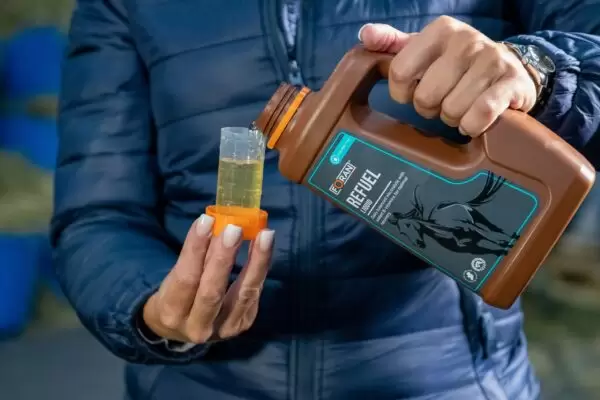
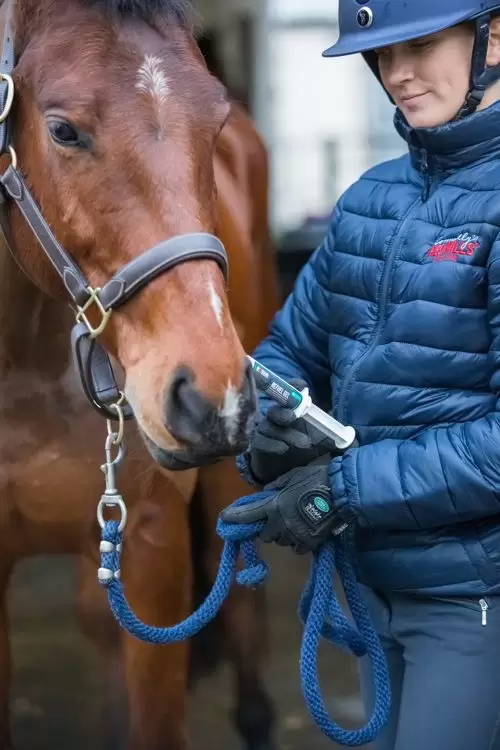
Electrolytes are also available in preloaded syringes of gel, Refuel. These syringes are particularly useful at a competition for quick and easy once off administration. Refuel Gel also has added B vitamins to aid muscle recovery and appetite plus antioxidants Vitamins C and E.
Always Have Water Available
Of course you can lead a horse to water but you can’t make them drink! However, you should never give electrolytes if the horse does not have access to water. Electrolytes without water will make the horse more dehydrated. Never give electrolytes to a distressed horse or a horse that is not recovering well after exercise without professional advice.
Adding an electrolyte supplement every day will not “load” the horse’s system. The horse will eliminate what it doesn’t need on a daily basis. But, adding electrolytes every day to horses in training will ensure that any electrolytes lost in training are replaced and improves post exercise recovery and performance.
Some horses may refuse water after competition even though they are dehydrated. Adding apple juice to the water may tempt them to drink.
For further advice on electrolytes contact our local expert Nia O’Malley on +353 87990265.
To find a Foran Equine Dealer near you, click here.

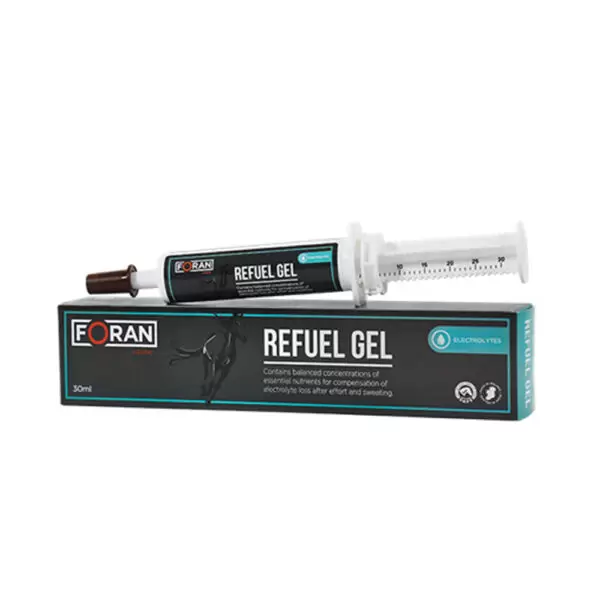
Concentrated electrolyte gel with added B vitamins and antioxidants for optimum recovery
View Product